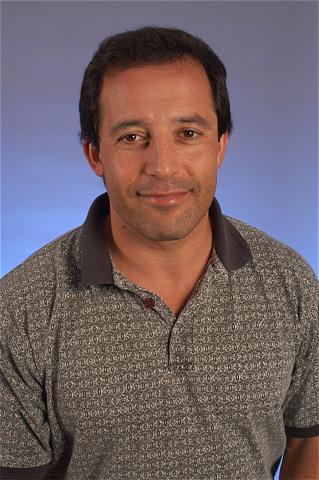IEEE CNS 2013 Keynote Speakers
Secure Fragmentation for Content-Centric Networks
by: Gene Tsudik

Abstract:
Content-Centric Networking (CCN) is a communications paradigm that emphasizes
content distribution. Named-Data Networking (NDN) is a concrete instantiation of CCN
being considered as one of the candidate Future Internet Architectures. NDN
includes human-readable content naming and router-based content caching
which lends itself to efficient, secure and scalable content distribution. Because of
a fundamental requirement that each content object must be signed by its
producer, fragmentation has been considered incompatible with NDN.
In this talk, we show that secure and efficient content fragmentation is both
possible and advantageous in NDN and similar architectures that involve signed content.
We demonstrate a concrete technique, discuss its security guarantees and assess performance.
BIO:
Gene Tsudik is a Chancellor's Professor of Computer Science at UC
Irvine (UCI). He received his PhD in Computer Science
from USC in 1991. Before coming to UCI in 2000, he was at IBM Zurich
Research Laboratory (1991-1996) and USC/ISI (1996-2000). Over the years,
his research interests included many topics in security, privacy and applied
cryptography. Since 2009, he serves as the Editor-in-Chief of ACM Transactions on
Information and Systems Security (TISSEC).
Secure and Resilient Network Architectures
by: Vipin Swarup

Abstract: Enterprise networks are under constant attack and network defenders must contend with the expectation that persistent cyber adversaries will eventually penetrate standard perimeter defenses. In this talk, we describe an enterprise-oriented network security architecture that protects against adversaries who have acquired an initial foothold within enterprise or enclave networks. The architecture introduces a new edge security device that encodes user and host identity (and optionally role and trust) information into each network packet and enforces network admission and access control policies. We then discuss the research challenges in making such network architectures resilient to advanced persistent threats.
BIO:
Dr. Vipin Swarup is the Chief Scientist for Mission Assurance in MITRE's Cyber Security Division. He leads MITRE's corporate cybersecurity research program focused on mission assurance against advanced cyber threats, which includes over 25 research projects in network security, mobile computing security, cloud computing security, cyber analytics, active cyber defense, and resiliency. He is responsible for creating and executing MITRE’s cybersecurity research strategy and for the technology transfer of resulting innovations.
In the past, Dr. Swarup has led research projects in trust management, cross-boundary information sharing, context-aware security, security guards, and mobile agent security, and has published extensively in these and other areas. His work for agencies such as AFRL, NSA, DARPA, and OSD has resulted in significant outcomes. His security guard filter technology, called Felt, has been integrated and deployed on several military security guard products worldwide. In 2008, he played a lead role on a US Department of Defense (DOD) team that developed a DOD Science and Technology (S&T) strategy for cyber conflict defense against advanced cyber threats -- based on this strategy, DOD substantially reshaped its funding priorities in cybersecurity research.
Dr. Swarup holds a B.Tech. in Computer Science and Engineering from Indian Institute of Technology, Bombay, and an MS and Ph.D. in Computer Science from the University of Illinois at Urbana-Champaign. |
